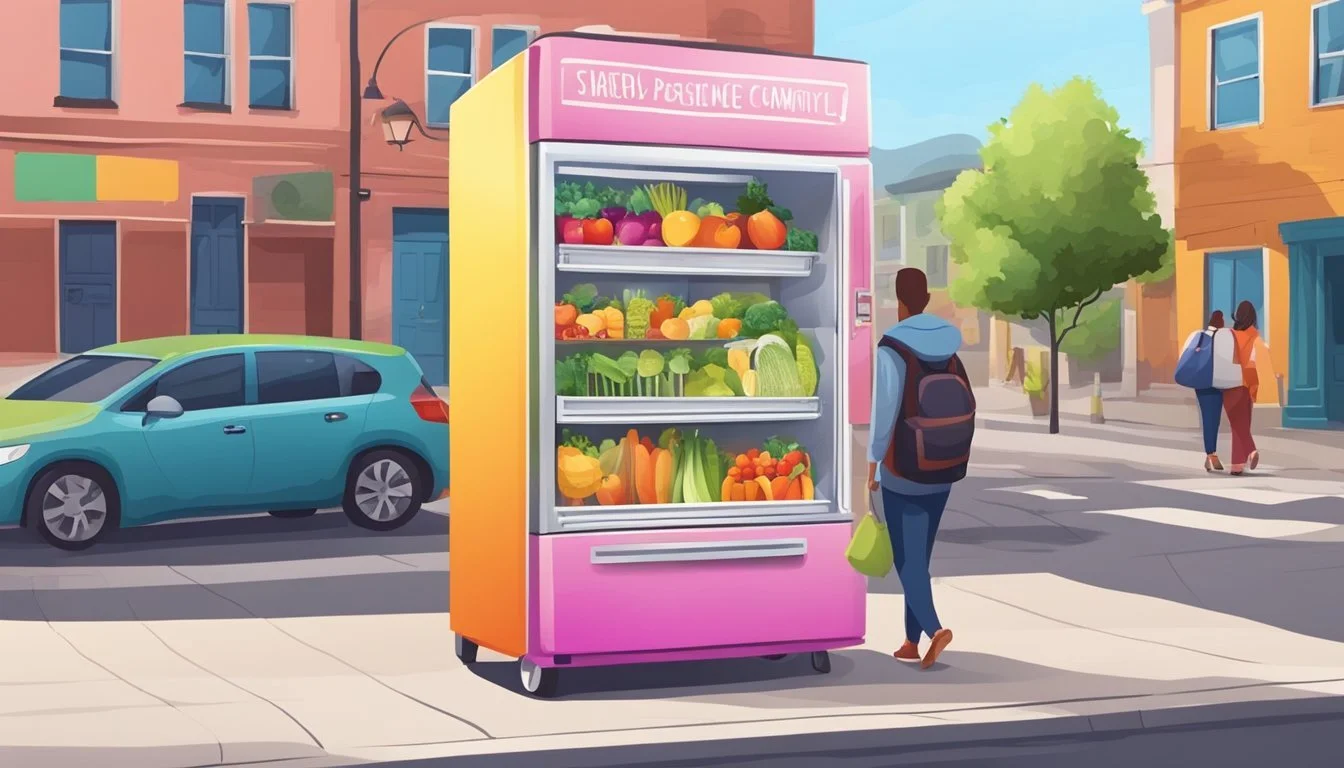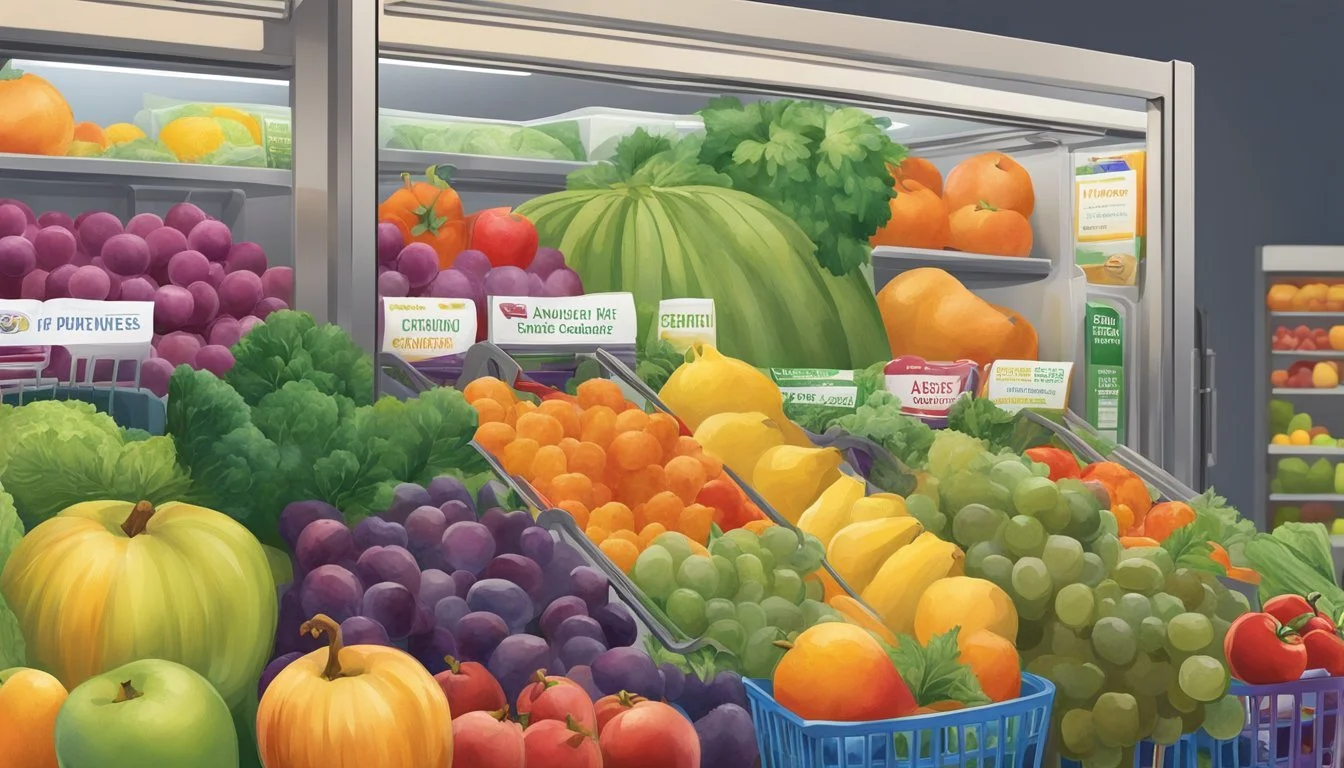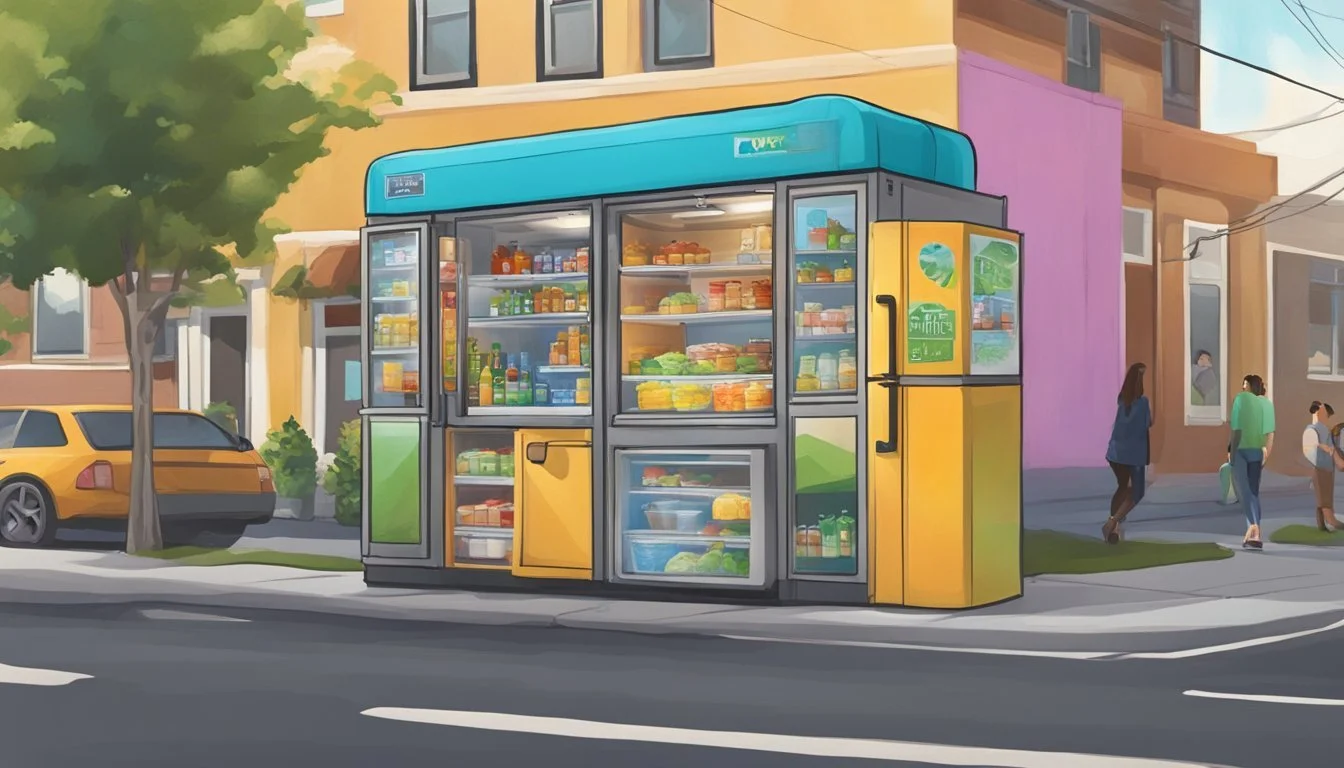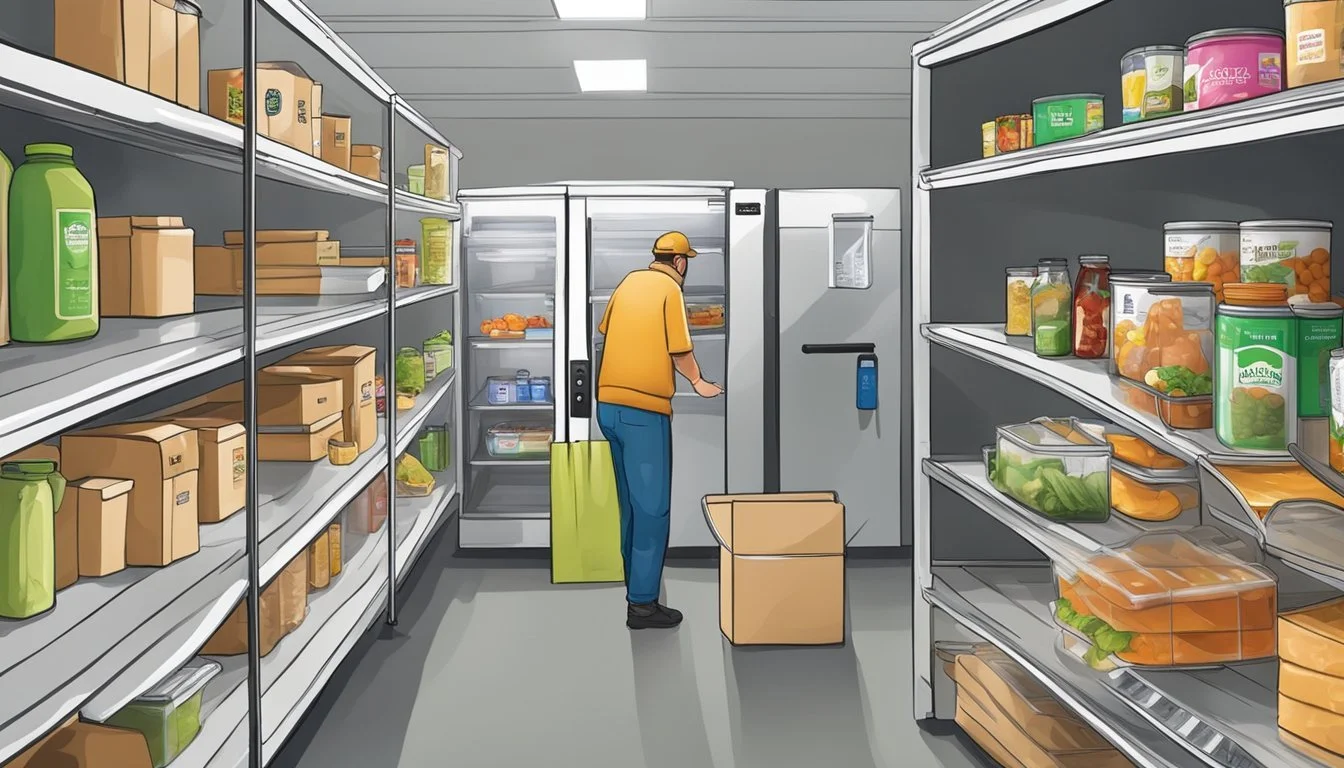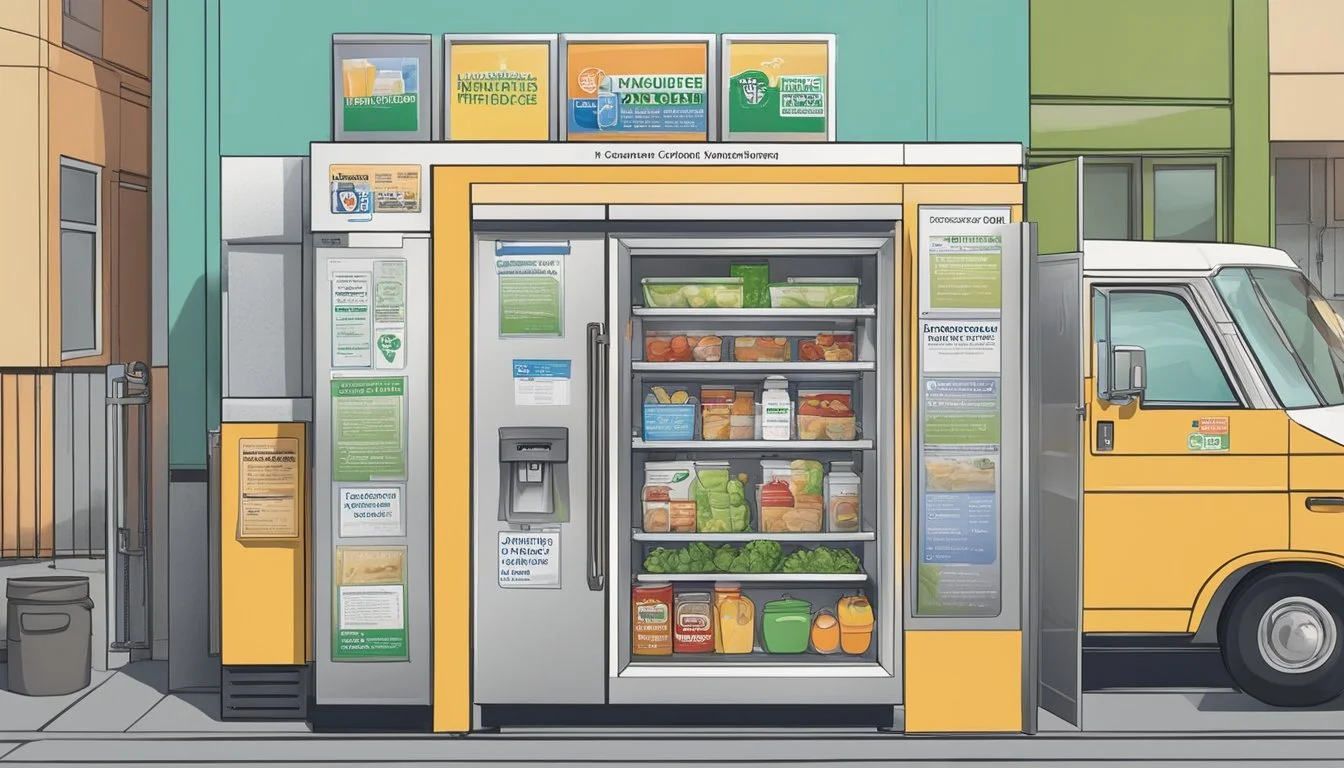Vancouver, WA Community Fridge
Tackling Food Insecurity with Compassion
Community fridges have become a sprouting initiative across many cities, aiming to address food insecurity and reduce waste by fostering sharing and mutual aid within the community. Vancouver, Washington, is home to a project that exemplifies this movement: the Vancouver Free Fridge Project. The project operates with a simple guideline that encourages people to "take what you need, leave what you can." This approach has not only facilitated access to free food for those in need but also spurred a sense of community solidarity and support.
Vancouver’s embrace of community fridges is part of a larger, global trend but takes on a local flavor as residents and organizers tailor the effort to suit the city's unique demands. These fridges are strategically placed in accessible locations, and they are kept stocked with various food items, including fresh produce, dry goods, and dairy products. The items are donated by residents, businesses, and local food producers, who collectively ensure that the fridges are a reliable resource for all community members.
With an increasing number of fridges appearing around the city, Vancouver's program aligns with municipal codes and standards, demonstrating how community-driven solutions can coexist with local regulations to address urgent social challenges. The Vancouver Free Fridge Project stands as a testament to community resilience and the power of grassroots initiatives in fostering sustainable food systems and caring neighborhoods.
History of Community Fridges
Community Fridges have emerged as a practical response to food insecurity and food waste, rooted in the concept of mutual aid. These initiatives exemplify a grassroots effort to foster solidarity and support within local communities.
Origins of Free Fridge Movement
The Free Fridge Movement began as a way to simultaneously combat food waste and address food insecurity through localized mutual aid. It arose out of historical practices within Black and Indigenous communities to provide for one another outside of traditional charitable models. The movement gained significant traction in urban areas, where public refrigerators, also known as 'freedges', became community resources.
Growth in Vancouver
Vancouver, Washington, experienced the establishment of its first community fridge under the Vancouver Free Fridge project. This initiative aimed to reduce both food waste and food insecurity by allowing residents to freely take what they need and leave what they can. The first installation on East 28th Street led to additional fridges across the city, which followed local code requirements and were embraced by the community for their accessibility and promotion of shared community responsibility.
Vancouver Free Fridge Project
The Vancouver Free Fridge Project is a community-driven initiative that tackles food insecurity through a network of publicly accessible refrigerators and pantries stocked with free nutritious food.
Mission and Goals
The project operates on a mutual aid basis, functioning under the tenet: Take what you need, leave what you can. Its primary mission is to provide 24/7 access to free and nutritious food for residents, directly addressing the challenge of food insecurity in Vancouver, Washington. The goals also extend to fostering community solidarity and supporting residents in times of need without the barriers often associated with traditional food aid.
Impact on Food Insecurity
Since its inception, the Vancouver Free Fridge Project has seen a positive impact on the local community by increasing access to food supplies. The existence of multiple fridge locations supports a wider reach within the community, ensuring that a diverse demographic has the ability to obtain food without stigma or restriction. This approach has proven essential in filling the gaps left by other means of food assistance, contributing significantly to the reduction of food insecurity in Vancouver.
Participation and Volunteering
The success of the Vancouver, WA Community Fridge relies on active community participation and the dedication of volunteers. The initiative offers a platform for individuals to contribute to the community’s well-being, while volunteer responsibilities ensure the project's sustainability and accessibility.
How to Get Involved
Individuals interested in supporting the Vancouver, WA Community Fridge can engage through several avenues:
Join the Network: Connect with the project via their social media or contact information to become part of the volunteer network.
Donate Food or Supplies: Contributions of perishable or non-perishable food items and essential supplies are always welcomed.
Volunteer Responsibilities
Volunteers play a crucial role in maintaining the community fridge, and their responsibilities include:
Inspect and Organize: Regular check-ups of the fridge to ensure the food is safe for consumption and supplies are well-organized.
Spread Awareness: Educating the community about the project to increase participation and support.
Donation Guidelines
The Vancouver Free Fridge program relies on community donations to stock the fridges with food and hygiene products. Individuals wishing to contribute should adhere strictly to donation guidelines, ensuring all items are safe and healthy for public use.
What to Donate
Individuals can donate a variety of items that are non-perishable, healthy, and legally compliant with food safety regulations. Here are specific categories of items and examples of what is acceptable:
Non-perishable foods: Canned goods, pasta, rice, and unopened packaged snacks.
Fresh produce: Fruits and vegetables that are in good condition.
Hygiene products: Unopened toothpaste, soap, and menstrual care products.
Packaged goods: Must be unopened and within their expiration date.
For a successful donation, consider:
Checking expiration dates before donating packaged goods.
Ensuring fresh produce is free of spoilage or bruising.
Donating items in their original, unopened packaging whenever possible.
Safety and Health Regulations
The safety and health of community members are paramount. Donors must adhere to local health regulations and safety standards to ensure the well-being of all participants. Key regulatory points include:
Handling and Packaging: Ensure all items are clean and securely packaged.
Expiration: Do not provide any items past their sell-by or use-by dates.
Temperature-sensitive items: Avoid donating foods that require refrigeration or freezing to maintain safety.
Before donating, donors should verify that all contributions are in line with current health advisories and guidelines. Only items that meet these standards will be accepted for the safety of everyone accessing the fridges.
Location and Accessibility
The Vancouver Free Fridge program plays a vital role in offering food to community members with ease of access. Strategically placed across the city, these fridges ensure that essentials are accessible 24/7, reflecting a commitment to communal support and care.
Fridge Sites in Vancouver
Hazel Dell: Located at 5903 NE Hazel Dell Ave, this site is one of the accessible locations where community members can access food.
Grand Boulevard: The fridge at 1202 Grand Blvd extends the network of community fridges, making resources available in more neighborhoods.
Each site features a combination of a fridge and pantry, maintained in accordance with city code to seamlessly blend into the community's fabric, often in front yards or easily reachable locations.
Accessibility Considerations
Every fridge site is open 24 hours a day, providing uninterrupted access. This round-the-clock availability is a cornerstone of the project, ensuring that community members can obtain food regardless of their schedule. The set-up at each location is designed to be user-friendly so that individuals can "take-what-you-need, leave-what-you-can" without barriers.
Challenges and Solutions
The Vancouver, WA Community Fridge faces challenges in terms of community acceptance and the practicalities of maintaining such an initiative. These refrigerators aim to address food insecurity but must balance the logistical concerns with the community's needs.
Community Concerns
The introduction of outdoor refrigerators as part of the Community Fridge initiative can meet resistance from local residents. Concerns often revolve around the potential for increased litter or misuse of the facilities. To alleviate these worries, organizers have actively engaged with community members, holding discussions to explain the goals and regulations of the project. They've also ensured:
Designated supervisors to monitor and maintain cleanliness.
Clear signage indicating appropriate usage guidelines.
Sustainability and Maintenance
Maintaining public refrigerators involves continuous monitoring and support. The sustainability of the Vancouver Community Fridge hinges on:
Regular Inspection: Refrigerators are checked for functionality and cleanliness.
Community Participation: Residents are encouraged to participate, fostering a sense of ownership and responsibility.
Structural integrity is another concern, as refrigerators are subject to the elements. To address this:
Protective Structures: Durable enclosures protect the refrigerators from weather damage.
Repairs and Replacements: A system is in place for timely servicing or replacement of appliances.
In some instances, the introduction of community fridges has led to legal challenges, with the city raising questions about code compliance. When such issues arise, petitions may be organized to garner support for the continuation of the service, demonstrating its importance to community welfare. These petitions have been instrumental in ensuring the project's alignment with municipal regulations.
Expansion and Future Goals
The Vancouver Free Fridge program is poised for growth, with a focus on increasing the number of fridges and enhancing support to communities in need. Their approach balances practicality with compassionate action.
Strategies for Expansion
The program aims to scale up by strategically placing new fridges in areas with high demand. Furthermore, they plan to improve existing service quality and ensure compliance with city regulations. By installing modular sheds, they protect the fridges from the elements while making them easily accessible.
Location Selection: Choosing sites based on community feedback and identified need.
City Code Compliance: Working within municipal guidelines to ensure public safety.
Infrastructure Improvement: Enhancing the fridges' surrounding environment for easier access.
Collaboration with Local Charities
Partnerships with local charities are fundamental to the program’s operation. These collaborations aim to:
Streamline Food Donation: Facilitating connections between food donors and the fridge sites.
Community Outreach: Raising awareness and driving community engagement to support the cause.
Shared Goals: Aligning with charities that also wish to reduce food insecurity and waste.
Through careful coordination, the program looks to build a robust network that will support its mission and expand its reach within Vancouver.
Community Engagement and Awareness
The Vancouver Free Fridge Project has leveraged community engagement and awareness strategies effectively to combat food insecurity and waste. They have created a network of support that allows members to participate in food sharing through drop-offs and pick-ups at various locations.
Outreach Programs
The Vancouver Free Fridge Project engages in various outreach programs designed to both inform and involve the local community. They operate a network of community fridges and pantries which provide 24/7 access to food on a "take what you need, leave what you can" basis. These programs emphasize solidarity and rely heavily on volunteer efforts, encouraging local residents to support one another in times of need.
Online Presence and Social Media
Facebook serves as a primary platform for the Vancouver Free Fridge Project to connect with the community. With a strong online presence, they have acquired over 2,400 followers, using the platform to update the community on new fridge locations, volunteer opportunities, and providing insights into their operations. The active engagement on social media has helped raise awareness and promote the principles of community support and sharing.
Legal and Regulatory Considerations
The success of the Vancouver Free Fridge program hinges on its strict adherence to city regulations and its ability to navigate complex bureaucratic systems.
City Ordinances and Compliance
The City of Vancouver has codes and regulations that community fridge programs need to follow to operate within the law. For example, the location of community fridges must conform to zoning regulations that dictate where such installations can be placed. Food safety is also a paramount concern. The fridges must be regularly maintained and cleaned to meet health standards set by municipal health departments.
Navigating Bureaucracy
To operate a community fridge, organizers must be well-versed in the necessary procedures for obtaining permits and ensuring continual compliance with city regulations. They deal with multiple city departments, including health, zoning, and waste management, to secure the permits needed. This process can be quite involved, requiring clear communication and thorough documentation to meet the City of Vancouver's standards and to sustain the initiative's operations.



